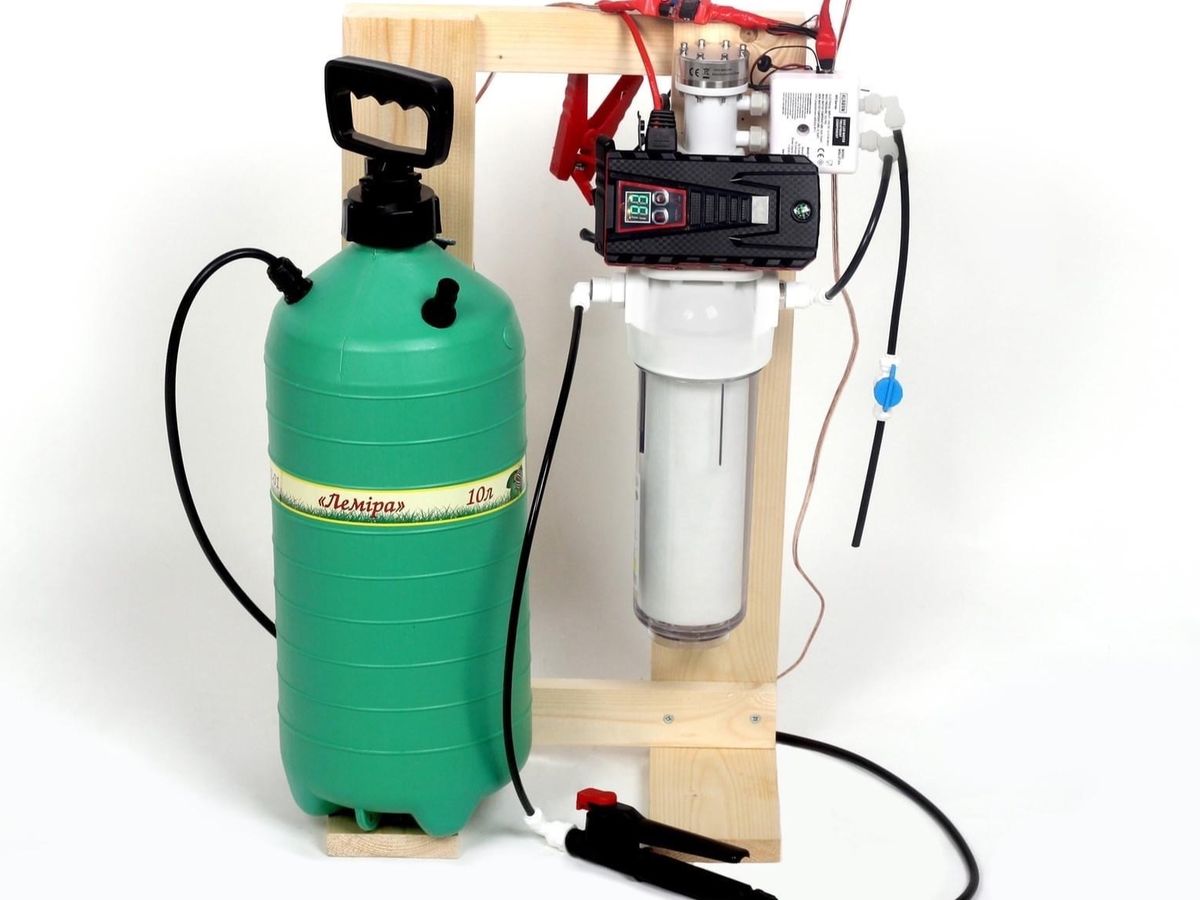My name is Dr. Tatiana Koutchma. I am a Research Scientist at Agriculture and Agri-Food Canada, specializing in emerging food processing technologies. Because of my Ukrainian and Russian Roots, it is painful to witness the unprecedented tragedy on Ukrainian soil where my father, Nicolay Koutchma, was born and fought in World War II. But also, because men from my Russian family with the same last name as me can be drafted and become participants in this war. To support the people of Ukraine, together with my Ukrainian colleague Dr. Maksym Bazhal who lives in Irpin (a suburb of Kyiv), we have worked together to develop mobile innovative solutions for providing clean, sustainable drinking water solutions to local Ukrainian populations.

Dr. Maksym Bazhal is a Research Scientist with the National University of Food Technologies, Ukraine.
The Problem:
The ongoing war in Ukraine has devastated the water and electrical infrastructure, leaving millions of civilians without access to drinking water and power. Destruction of dams and restricted access to drinking water have left millions needing urgent adequate access to safe drinking water, leading them to drink water directly from lakes, rivers, old unkept wells, and other microbiologically unsafe water sources. Ultraviolet (UVC) light LED reactors can save lives by ensuring sustainable access to clean and disinfected water. The UVC LED-based mobile system for water disinfection in crisis was built in Ukraine using the donated Klaran LED disinfection system. We are also grateful that Klaran also donated their respected intellectual scientific resource in Dr. Richard Mariita as part of support. With this initial support, the urgent need is to create 500 mobile disinfection kits which have filtration and UVC LED disinfection capabilities to ensure effective disinfection of water from non-traditional sources such as dams, lakes, rivers and other sources.


Further Details on the Situation:
The destroyed Kakhovka reservoir was a source of drinking and industrial water for five regions of Ukraine at once: Kherson, Mykolaiv, Dnepropetrovsk, Zaporozhye regions, and Crimea. The Russian Aramaeans now occupy some of these territories.
The water level in the Kakhovka reservoir in Kherson is falling, the water is moving away from the banks, and the pumps can no longer provide water supply. Downstream, water temporarily increased and flooded houses, roads, villages, and cities. But then this water will eventually go into the sea; there will be little water left. The remaining water in the Kakhovka reservoir may require additional treatment soon because of ongoing pollutions from infantry related activities. Streams rushing to the Black Sea washed away garbage dumps, sewers, shallow makeshift cemeteries, debris, etc.
In the regions of Ukraine where the Armed Forces of Ukraine control the situation, almost a hundred kilometers of water supply will have to be built. We are talking about providing water to more than a million people. The government has already allocated more than $40 million for this. But when these new water pipelines will be built is still being determined. It takes a lot of time. People need help now.
Moreover, all these regions are front-line; they are constantly under fire. Therefore, mobile water disinfection installations will soon be required to purify the available water for human use. We have always thought of clean drinking water as our right. But now, many people live in the field without access to clean drinking water. They are getting sick. So we have to act because we still have water from the rivers, lakes, and our swamps. People will be able to purify water for themselves.

A Solution:
A few critical challenges must be addressed to implement this project. The kit's components: pumps, tubes, filters, and water tanks that are available locally, must be purchased. Also, in such a crisis and low resources situation with no laboratories and expensive validation equipment, there should be access to portable water test kits and essential instruments that are easy to use for monitoring water quality and the microbiological water disinfection effectiveness.
Prof. Maksym Bazhal is still in Irpen, Ukraine, and he has refused to leave. He is staying put to help his community. He has coordinated and tested the mobile kit's microbiological disinfection efficacy against Irpen River microbial assemblages and showed its efficacy! The solution design works!!

Your Donation’s Impact:
Unfortunately, and this is where we need those with humanitarian spirit to help, more funds are needed to build, test and distribute mobile kits to different locations in Ukraine. The number of LED systems to be donated by our corporate partners' Crystal IS, is 500 total UVC LED systems. This donation will help give hundreds and thousands of civilians’ fast access to clean drinking water. We are a sharing community, and we will share amongst families/neighbors.
Dr. Maksym Bazhal will coordinate this effort in Ukraine.
Dr. Tatiana Koutchma leads the overall efforts.

